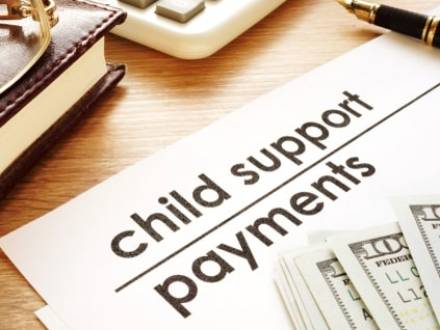
Recent Blog Posts
Navigating Holidays and Birthdays as a Divorced Dad
 For dads who no longer see their children every day after a divorce, holidays and birthdays can be particularly difficult. These milestones often come with traditions, expectations, and heightened emotions for both parents and children.
For dads who no longer see their children every day after a divorce, holidays and birthdays can be particularly difficult. These milestones often come with traditions, expectations, and heightened emotions for both parents and children.
Whether you are newly divorced or years into the co-parenting arrangement, navigating these special days requires setting realistic expectations, advanced planning, flexibility, and focusing on what really matters: your child’s happiness and well-being.
There are ways for divorced dads to handle holidays and birthdays with grace while reducing co-parent conflicts and creating lasting memories with children. If you have questions pertaining to custody or visitation, speaking to an experienced divorce attorney who can answer all your questions can be extremely beneficial.
Co-parenting and Scheduling for Holidays and Birthdays
If you and your ex-spouse are on good terms following your divorce, planning is much easier than when you barely speak to one another. It is a good idea to take a look at the year ahead, reviewing your parenting plan and holiday schedule. As far as children’s birthdays, if there is any way possible, family therapists usually agree that celebrating birthdays with both parents is generally preferable to splitting them up.
Planning for Summer Visitation as a Single Dad
 It can feel overwhelming when you, as a single dad, are planning for the summer visitation time with your children. While it is normal to experience stress and anxiety regarding summer visitation, particularly if you do not have 50/50 custody and do not see your children often, with some planning and preparation, both you and your children can have a summer vacation/visitation that is memorable for all involved.
It can feel overwhelming when you, as a single dad, are planning for the summer visitation time with your children. While it is normal to experience stress and anxiety regarding summer visitation, particularly if you do not have 50/50 custody and do not see your children often, with some planning and preparation, both you and your children can have a summer vacation/visitation that is memorable for all involved.
If you and your ex are on good terms following the divorce, it should be easier to plan for summer visitation than if you barely speak to one another. Whatever your situation, plan to make this summer visitation an experience your children will be reliving and talking about for months and years. If you have questions regarding custody and visitation issues, talk to an experienced divorce attorney who can comprehensively answer your questions and guide you through the process.
Tips for the Best Summer Visitation
There are some things you can do that will help ensure a great time with your children this summer. Most of them are fairly simple and take little time, but they could make the difference between a disaster and an outstanding success. Some of these tips include:
The Five Biggest Challenges for Men During a Divorce
 Divorce is challenging for all those involved. While both men and women are treated the same in the eyes of the law, it remains more difficult for men to obtain primary custody of their children. Men are also much less likely to have a social network to help them through a divorce, while women do typically have this type of support. Whether you are a man facing a divorce or one who has made it through the divorce and now has very little clue on how to proceed with your life, it can be helpful to discuss your situation with an experienced divorce attorney who can help you get through the coming months in the best way possible.
Divorce is challenging for all those involved. While both men and women are treated the same in the eyes of the law, it remains more difficult for men to obtain primary custody of their children. Men are also much less likely to have a social network to help them through a divorce, while women do typically have this type of support. Whether you are a man facing a divorce or one who has made it through the divorce and now has very little clue on how to proceed with your life, it can be helpful to discuss your situation with an experienced divorce attorney who can help you get through the coming months in the best way possible.
Getting Through the Challenges of Divorce
There are many challenges a divorcing man may face, even more if the couple has children. While there may be couples who can have an amicable divorce with no disagreements, these are usually few and far between. The following are the five most common issues men face in divorce.
My Ex is Constantly Late for Drop-offs and Pickups
 Co-parenting after divorce is often filled with one issue or problem after another, even when parents get along fairly well. One of the biggest annoyances for many divorced parents is when the other parent is never on time for pickups and drop-offs. Although it is not uncommon, this can be a frustrating situation. Perhaps your ex-wife was chronically late during your marriage, or maybe this is something new that is actually meant to annoy you.
Co-parenting after divorce is often filled with one issue or problem after another, even when parents get along fairly well. One of the biggest annoyances for many divorced parents is when the other parent is never on time for pickups and drop-offs. Although it is not uncommon, this can be a frustrating situation. Perhaps your ex-wife was chronically late during your marriage, or maybe this is something new that is actually meant to annoy you.
Unless you and your ex-wife also have a laundry list of other co-parenting problems, it could be best to try to find a solution outside the court system before you start filing motions and have to return to court. It is also extremely beneficial to discuss the situation with an experienced child custody attorney who can assess your specific situation and help you determine whether court intervention is appropriate.
Do Dads Ever Get Child Support?
 A November 2023 report found that more than 4.1 million parents across the United States received child support payments during 2022. The "average" monthly child support payment is $441, but this amount varies widely from state to state and from one situation to another. The report found that it is almost as likely for custodial fathers to receive child support as custodial mothers (43 percent vs. 46 percent).
A November 2023 report found that more than 4.1 million parents across the United States received child support payments during 2022. The "average" monthly child support payment is $441, but this amount varies widely from state to state and from one situation to another. The report found that it is almost as likely for custodial fathers to receive child support as custodial mothers (43 percent vs. 46 percent).
Custodial fathers had a higher rate of never receiving a single child support payment and were also more likely to receive non-cash support, such as diapers, clothing, payments to daycare, payments for medical expenses, etc. If you and your spouse are navigating custody and child support issues, having an experienced divorce attorney as your legal advocate is beneficial.
Is It More Likely for Mothers to Be Designated as the Custodial Parent?
The study above found that it was almost as likely for custodial fathers to receive child support as for custodial mothers. The study made no note of whether it is equally likely for a father to receive primary custody as for a mother. While these statistics are hard to come by, a 2021 Bloomberg article found that mothers are the designated custodial parent about 65 percent of the time, with fathers at only 35 percent.
Making the Most of Dad’s Visitation/Parenting Time
 It can be difficult for dads who must transition from being with their children on a daily basis to having visitation or parenting time following a divorce. Sharing holidays can be especially tough since many holidays may be spent alone. Dads who see their children every other weekend may be unsure how to make the most of that time, while others may seek ways to get more parenting time.
It can be difficult for dads who must transition from being with their children on a daily basis to having visitation or parenting time following a divorce. Sharing holidays can be especially tough since many holidays may be spent alone. Dads who see their children every other weekend may be unsure how to make the most of that time, while others may seek ways to get more parenting time.
Knowing what to expect generally smooths the way a bit, but dropping off your kids after having them for less than two days in two weeks can be more difficult than you ever imagined. There are ways to maximize your time with your children and ways to ask for more time. Having a skilled divorce attorney who will advocate for your rights and who understands your concerns is especially important during this time.
Maximizing Your Parenting Time
It may feel as though you have barely gotten to the point where your children feel comfortable with you when it is time to take them back to their mother. It is tempting to spoil your children and not be a disciplinarian since you see them so rarely, but this is not generally a good idea. Children thrive on routines; you need to have a routine at your home that they can come to expect. Below are some tips that will help you maximize the time you have with your children.
Preparing for Divorce as a Father
 Getting a divorce is never easy. The process of dissolving your marriage can be highly emotional for all parties involved, and it is often mired in legal complexities. If you are going through divorce as a father, you may have even more reasons to feel stressed. You might be worried if your children will see you differently, or if a strained relationship with your ex will interfere with your parenting time. During this especially difficult period of your life, you should consider seeking out a skilled divorce attorney who can empathize with your concerns as a father and advocate for your rights.
Getting a divorce is never easy. The process of dissolving your marriage can be highly emotional for all parties involved, and it is often mired in legal complexities. If you are going through divorce as a father, you may have even more reasons to feel stressed. You might be worried if your children will see you differently, or if a strained relationship with your ex will interfere with your parenting time. During this especially difficult period of your life, you should consider seeking out a skilled divorce attorney who can empathize with your concerns as a father and advocate for your rights.
Breaking the News to Your Children
Once you and your spouse have decided to get a divorce, you should tell your children early on so that they are not blindsided by the news later. Depending on the age and maturity of your children, you will have to approach the topic differently. Even young children can grasp sensitive subjects, and if you handle it with care, your child may come to accept the divorce sooner rather than later. With older children and teenagers, there is bound to be some angst around the subject. Give your child space, and allow him or her to grieve in private as needed.
Addressing Domestic Violence Toward Men in Divorce
 While domestic violence is commonly thought of as a women's issue, many men also experience physical abuse in their marriages. Many men who are being physically abused at home do not fight back or call the police unless the abuse has escalated to life-threatening levels or the children are being harmed. Men may fear that the police will not take them seriously when they say that their wife is hitting them, or may have experienced ridicule upon trying to tell others about what is happening due to bias. This is especially true for men who are married to women who are significantly smaller than they are. When you have decided to leave your abusive marriage, the domestic violence you have been subjected to is likely to be relevant. You should always tell your divorce lawyer if you have experienced violence at the hands of your spouse.
While domestic violence is commonly thought of as a women's issue, many men also experience physical abuse in their marriages. Many men who are being physically abused at home do not fight back or call the police unless the abuse has escalated to life-threatening levels or the children are being harmed. Men may fear that the police will not take them seriously when they say that their wife is hitting them, or may have experienced ridicule upon trying to tell others about what is happening due to bias. This is especially true for men who are married to women who are significantly smaller than they are. When you have decided to leave your abusive marriage, the domestic violence you have been subjected to is likely to be relevant. You should always tell your divorce lawyer if you have experienced violence at the hands of your spouse.
Can a Father Get Custody of an Infant?
 In certain cases, fathers can get primary or even full custody of even very young babies. However, fathers seeking more time with their infants than the mother is willing to agree to may need to overcome significant legal hurdles. Courts tend to favor keeping newborns or young babies together with their mothers unless there is an excellent reason to place the baby primarily with the father. You will likely need to show that your baby is not safe with the mother and would fare better being cared for by you. Fathers seeking primary custody of their infants need to be represented by an experienced child custody lawyer who is experienced in working with fathers.
In certain cases, fathers can get primary or even full custody of even very young babies. However, fathers seeking more time with their infants than the mother is willing to agree to may need to overcome significant legal hurdles. Courts tend to favor keeping newborns or young babies together with their mothers unless there is an excellent reason to place the baby primarily with the father. You will likely need to show that your baby is not safe with the mother and would fare better being cared for by you. Fathers seeking primary custody of their infants need to be represented by an experienced child custody lawyer who is experienced in working with fathers.
Postpartum Mental Health and Emergency Custody Orders
Postpartum mental health disorders, such as postpartum psychosis or postpartum depression can come on suddenly and may be severe enough to warrant hospitalization. If your baby’s mother developed a postpartum mental illness, she may not be able to safely care for a newborn. Your attorney may be able to have your infant placed in your care on an emergency basis. However, these orders are often temporary, as postpartum mental health issues are generally very treatable. Your ex may recover and try to regain custody rights on a more permanent basis.
How to Get Sole Custody As a Dad
 Sole custody arrangements are rare. Courts nearly always want children to maintain a relationship with both of their parents, even when that means ordering supervised visitation for a parent who may not be safe for the children to be alone with. Sole custody arrangements where the father is the custodial parent are even less common than situations where only the mother has custody.
Sole custody arrangements are rare. Courts nearly always want children to maintain a relationship with both of their parents, even when that means ordering supervised visitation for a parent who may not be safe for the children to be alone with. Sole custody arrangements where the father is the custodial parent are even less common than situations where only the mother has custody.
However, it is possible for a father to gain sole custody under certain circumstances and with help from the right divorce and child custody lawyer. If you are hoping for sole custody, you will need to prove that having a continued relationship with your co-parent would not be in your child’s best interests.
Evidence is Everything When a Father Needs Exclusive Custody
Gathering evidence to show why your children would not benefit from a continued relationship with their mother is essential. No matter how reliable or trustworthy you have proven yourself to be, the court will very likely want to see strong evidence showing that the mother has been abusive towards the children or is otherwise unsafe for them to be around, even with supervision.











